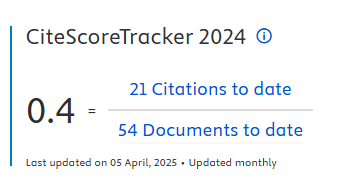The impacts of organizational culture on knowledge transferring in FDI enterprises in Vietnam
DOI:
https://doi.org/10.5585/iji.v8i3.16059Keywords:
Organizational culture, Knowledge transfer, FDI enterprises, Foreign managers, HCM City, Vietnam.Abstract
Objective of the study: Knowledge transferring through Foreign Direct Investment (FDI) enterprises is a strategic policy for the economic development of many countries. However, in the case of Vietnam, the effectiveness of knowledge transfer in FDI enterprises is not clear, especially with the impact of cultural distance between foreign investors and local employees. The main goal of this study is to explore the impact of organizational culture on knowledge transferring in FDI enterprises in Vietnam.
Methodology/approach: Based on the original model of Parissa (2003), a research model has been proposed, in which the organizational cultural factors include cultural background, language ability, perceived cultural distance, learning style, and cultural openness. Quantitative research conducted through surveys with 109 respondents, who are working in FDI businesses in Ho Chi Minh City, Vietnam.
Originality/Relevance: This research focuses on the direct impact of cultural factors on knowledge transfer at individual level between foreign managers and local employees in Vietnam.
Main results: Analytical results showed that three factors had a significant impact on the effectiveness of knowledge transfer, including Cultural openness, Language ability of foreign managers, and Communication distance.
Theoretical/methodological contributions: The study helps to test the measurement scales and contributes an empirical study in this field.
Social/management contributions: From these results, some managerial suggestions were made to support knowledge transferring between foreign managers and Vietnamese employees.
Downloads
References
Al-Alawi, I.A., Al-Marzooqi, Y.N., & Mohammed, F.Y. (2007). Organizational culture and knowledge sharing: critical success factors. Journal Knowledge Management, 11 (2), 22-42.
Bastiaan, R. (2009). Sharing knowledge, being different and working as a team. Knowledge Management Research & Practice, 7, 4-14.
Davenport, T.H., De-Long, D.W., & Beers, M.C. (1998). Building Successful Knowledge Management Projects. Sloan Management Review. Winter 1998, 39 (2), 43.
De-Long, D.W., & Fahey, L. (2000). Diagnosing cultural barriers to knowledge management. The Academy of Management Executive, 14 (4), 113-127.
Doz, Y., & Santos, J.F.P. (1997). On the management of knowledge: from the transparency of collocation and co-setting to the quandary of dispersion and differentiation. Institut Europeen d'Administration des Affaires (INSEAD).
Foss, N. J., & Pedersen, T. (2002). Transferring Knowledge in MNCs: The Role of Sources of Subsidiary Knowledge and Organizational Context. Journal of International Management, 8 (2002), 49–67.
Griffith, D. A., & Harvey, M. G. (2001). Executive insights: An intercultural communication model for use in global inter-organizational networks. Journal of International Marketing, 9 (3), 87 - 103.
Hall, E. T. (1973). The Silent Language. New York: Doubleday Anchor Book.
Hamel, G., Doz, Y., & Prahalad, C. K. (1989). Collaborate with your competitors, and win. Harvard Business Review, 67 (2), 133-139.
Hedlund, G., & Nonaka, I. (1993). Models of Knowledge Management in the West and Japan. In (P. Lorange): Implementing strategic processes: Change, learning, and Co-operation Basil Blackwell. Oxford, UK.
Hoang, T. & Chu, N.M.N. (2008). Phân tích dữ liệu nghiên cứu với SPSS (Tập 1 và 2), Nhà Xuất Bản Hồng Đức.
Islam, Z., Hassan, I., Ahmed, S. & Ahmed, S.M. (2011). Organizational Culture and Knowledge Sharing: Empirical Evidence from Service Organizations, African Journal of Business Management, 5 (14), 5900-5909
Kim, Y. (1988). Communication and Cross-Cultural Adaptation: An Integrative Theory. Multilingual Matters, Clevedon, England.
Kimiz, D. (2005). Knowledge Management in Theory and Practice, Oxford, Elsevier, UK.
Le, N.H. & Felicitas, E. (2007). Acquiring tacit and explicit marketing knowledge from foreign partners in IJVs. Journal of Business Research, 60 (2007), 1152–1165
Mueller, J. (2013). A specific knowledge culture: Cultural antecedents for knowledge sharing between project teams, European Management Journal, 32 (2), 190-202.
Nakagawa, K., Nakagawa, M., Fukuchi, H., Sasaki, M. & Tada, K. (2018). Japanese Management Styles: to Change or Not to Change? A Subsidiary Control Perspective. Journal of International Business and Economics, 6 (2), 1-10.
Nguyen, D.T. (2013). Phương pháp nghiên cứu khoa học trong kinh doanh. Nhà Xuất Bản Lao Động Xã Hội.
Nguyen, M. (2020). Harnessing further FDI to Vietnam. Vietnam Investment Review. Retrieved from: https://www.vir.com.vn/harnessing-further-fdi-to-vietnam-75879.html (Accessed on 02/05/2020).
Parissa, H. (2003). Does Culture Really Matter? Culture on the Knowledge Transfer Process within Multinational Corporations. Vienna University of Economics and Business Administration, Vienna, Austria.
Pham, Q. T. (2017). A Knowledge Management Approach for Ensuring the Success of IT Industries in Vietnam. New York: Nova Science Publishers, Inc.
Pham, QT., & Luu, CH. (2016). Impact of organizational culture on knowledge sharing behavior of employees in Vietnamese SME. Scientific Journal of Open University - HCMC, 5 (50), 87-98.
Pham, Q. T. & Nguyen, D. T. (2017). An Empirical Investigation of Knowledge Management in Vietnamese SMEs. The 17th International Conference on Computational Science and Its Applications (ICCSA), 2017.
Redmond, M. V. (2000). Cultural Distance as a Mediating Factors between Stress and Intercultural Communication Competence. International Journal of Intercultural Relations, 24, 151-159.
Sparkes, J. R. and Miyake, M. (2000). Knowledge Transfer and Human Resource Development Practices: Japanese Firms in Brazil and Mexico. International Business Review, 9, 599 - 612.
Verburg, R., & Andriessen, E. (2011). A Typology of Knowledge Sharing Networks in Practice. Knowledge and Process Management, 18(1), 34-44.
Williams, J. D., Han, S.-L., & Qualls, W. J. (1998). A Conceptual Model and Study of Cross-Cultural Business Relationships. Journal of Business Research, 42, 135-143.
Zander, U., & Kogut, B. (1995). Knowledge and the Speed of the Transfer and Imitations of Organizational Capabilities: An Empirical Test. Organization Science, 6 (1), 76-92.
Downloads
Published
How to Cite
Issue
Section
License
Copyright (c) 2020 Quoc Trung Pham, Xuan Kieu Dinh

This work is licensed under a Creative Commons Attribution-NonCommercial-ShareAlike 4.0 International License.
- Abstract 989
- PDF 764













